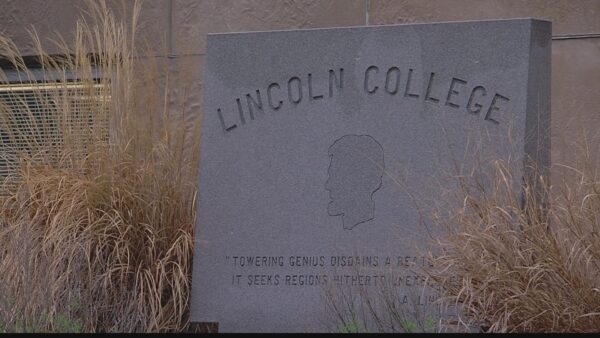Lincoln College Closes Its Doors After COVID-19 Pandemic and Ransomware Attack Devastate the Predominantly Black Institution’s Finances
The global COVID-19 pandemic and a recent Iranian cyberattack have had a devastating impact on one of Illinois’ predominantly Black colleges. After 157 years, the institution is set to close its doors, after failing to raise millions of dollars for operation.
Lincoln College (KSDK Screengrab)
According to a statement released by Lincoln College, the institution’s board of trustees has voted to cease all academic programming at the end of the spring semester, closing the administration of the historic institution permanently on Sat., May 13.
The school says it has already notified the Illinois Department of Higher Education and Higher Learning Commission about its decision to close.
School president David Gerlach said, “Lincoln College has been serving students from across the globe for more than 157 years. The loss of history, careers and a community of students and alumni is immense.”
Student Demarcus Barksdale organized a GoFundMe telling his peers to make a “contribution to this cause that means so much” to him, raising more than 10 percent of his $20,000 goal.
Despite Lincoln having a record-breaking student enrollment in Fall 2019, multiple factors contributed to the pending closure.
Two international occurrences drastically changed the trajectory of the school, even after having so many enrollees to the degree that the residence halls were filled to maximum capacity. COVID-19 not only stopped campus life, but impeded recruitment and fundraising efforts — two major sources of income for schools.
Lincoln was not the only school to have suspended in-person instruction at some point over the last three years.
All 50 states had mandated school closures as a safety response to the coronavirus outbreak. For Illinois, on Apr. 17, 2020, Gov. J.B. Pritzker closed schools for the remainder of the academic year, a crucial move that shook all of the tuition-based institutions across the state financially.
“The economic burdens initiated by the pandemic required large investments in technology and campus safety measures, as well as a significant drop in enrollment with students choosing to postpone college or take a leave of absence, which impacted the institution’s financial position,” the statement outlined.
Another unfortunate incident that hurt the school happened in December 2021, when it became a victim of a cyberattack waged by the Middle Eastern country of Iran.
The ransomware attack disrupted the administration’s access to institutional data and admissions activities.
Additionally, it so discombobulated the system, the school could not project the Fall 2022 enrollment numbers. By the time the information was fully restored, it was clear the school could not last another semester.
Lincoln College was one of 1,043 schools in the United States that fell prey to ransomware attacks, Emsisoft, a cyber security company, reports.
“The institution has worked tirelessly to strengthen its financial position through fundraising campaigns, selling assets, consolidating employee positions, and exploring alternatives for the leased building in Normal,” the statement continued.
“Unfortunately, these efforts did not create long-term viability for Lincoln College in the face of the pandemic.”
Founded on Feb. 6, 1865, two months before its namesake President Abraham Lincoln was assassinated, the college was established by the Cumberland Presbyterian Church as Lincoln University, independent from the then-POTUS.
The college holds the honor of being the first school named after him and the only school created during his lifetime. After its founding, the name was changed to Lincoln College.
While Lincoln College is not a historically Black college or university, Lincoln University in Pennsylvania and Lincoln University in Missouri are. The school is designated by the U.S. Department of Education as a predominantly Black institution, CNN reports.
A PBI is a school that serves at least 1,000 undergraduate students; has at least 50 percent low-income or first-generation degree-seeking undergraduate enrollment; has a low per full-time undergraduate student expenditure in comparison with other institutions offering similar instruction; and enrolls at least 40 percent African-American students.
Over the years, the school has faced several challenges: the economic crisis of 1887, a major campus fire in 1912, the Spanish flu of 1918, the Great Depression, World War II and the 2008 global financial crisis. This latest struggles were too insurmountable for the school to withstand.
Gerlach said, “Though we are experiencing undeniable grief and sadness, we find comfort in knowing Lincoln College has served generations of alumni who have undoubtedly impacted our world.”

